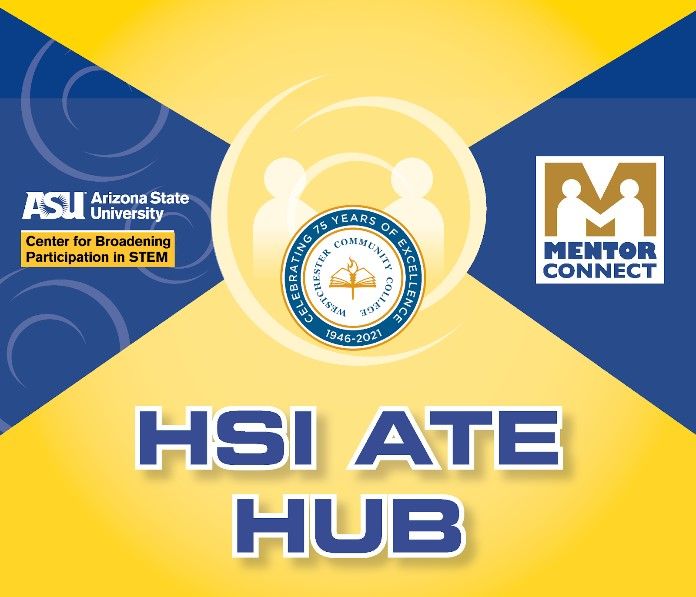
The HSI ATE Hub 2 faculty development modules and annual webinars provide HSIs and Minority Serving Institutions with what they need to support student success in technician education and related STEM programs of study. These resources are being developed through by faculty with the guidance of industry representatives and experienced curriculum developers. The HSI ATE Hub’s Professional Development for Culturally Responsive Technician Education guides faculty in translating research to practice in the classroom. Relevant resources are contextualized for HSIs.
Implementing these and other improvements in technician education take time and resources. The NSF ATE Program offers funding opportunities for this purpose. Through the HSI ATE Hub and partnering Mentor-Connect Initiative, educators gain access to experienced mentors, technical assistance, and helpful resources that will increase the likelihood of obtaining NSF grants. Participation enables faculty to become a part of the growing HSI ATE Community, develop HSI faculty leadership skills, and improve STEM/ Technician Education Programs at their HSI.
Gain access to experienced mentors and helpful resources that will increase your capacity to obtain NSF grants, become a part of the growing HSI ATE Community, develop HSI faculty leadership skills, and improve STEM/ Technician Education Programs at your HSI.
HSI ATE Hub-2: This faculty development project is guiding educators in translating and applying theory and research on culturally responsive education to implement effective practices that are guided by knowledge, skills, values, and attitudes to improve the diversity of the STEM technical workforce. Cultural responsiveness validates, affirms and acknowledges students’ diverse heritages. Westchester Community College (WCC) and Center for Broadening Participation in STEM at Arizona State University (ASU), along with Florence Darlington Technical College’s ATE-funded Mentor-Connect project –all experienced in implementing initiatives to improve outcomes for Latinx and other underrepresented populations in the STEM technical workforce- are collaboratively implementing this project to address the need for culturally responsive technician education.
HSI ATE Hub: supported by multiple ATE awards, HSI ATE Hub offerings align to key focus areas critical to transforming STEM Education at HSIs. Currently available is a curated collection of resources that address advising, mentoring and non-academic support systems; STEM academic support structure and systems; evidence-based pedagogies; equity, diversity, and culturally responsive practices, research experiences, and high impact practices. The HSI ATE Hub a provides pathways to success in securing NSF ATE grant funding to support STEM technician education and related programs at 2-year colleges. The HSI ATE Hub is currently developing a modular, replicable, and transportable program of faculty development for culturally-responsive Technician Education. The first HSI ATE Hub project used mentoring and technical assistance to build capacity and leadership at 2-year HSIs for developing competitive ATE proposals and elevating 2-year HSIs as drivers of their community’s economic success via technician education. This work is being continued by Mentor-Connect. The HSI ATE Hub initiative offers an annual webinar on culturally responsive technician education and a curated library of resources specific to advancing the work of current and emerging 2-year HSIs in developing a diverse, skilled technical workforce (www.Mentor-Connect.org, Find a Resource, Library, key word “HSI”).
The resources in the HSI ATE Hub align to key focus areas critical to transforming STEM Education at HSIs. These include advising, mentoring and non-academic support systems; STEM academic support structure and systems; evidence-based pedagogies; equity, diversity, and culturally responsive practices; and research experiences and high impact practices.